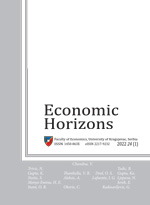THE IMPACT OF FOREIGN AID ON HOUSEHOLD INCOME AMONG ETHNIC MINORITY GROUPS IN VIETNAM
Luan Thanh Nguyen1, Tuyen Quang Tran2 and Hang Minh Tran3
1University - Lao Cai Campus, Lao Cai, Vietnam
2Vietnam National University, Hanoi, Vietnam
3National Institue of Anthropology, Hanoi, Vietnam
Ethnic minorities in Vietnam account for only 15% of the population, but their poverty levels total more than 70% of the national poverty rate. Foreign aid has been an important financial resource supporting the socioeconomic development of ethnic minorities in Vietnam. Based on the empirical research in ethnic households conducted in nine provinces throughout the country, the effect of foreign aid on household income was estimated using the OLS regression model. The results show varying effects in the magnitude and significance among different ethnic groups. Specifically, aid has significantly improved the livelihood of the Cham and Xtieng populations, whereas the results for the Hmong population are detrimental. Consequently, it is suggested that aid and the ethnic policy should be reconsidered in order to reduce inequality among ethnic groups.
Keywords: foreign aid, ethnic minorities, household income, rural Vietnam, OLS regression
JEL Classification: D31, D63, O12, O21




